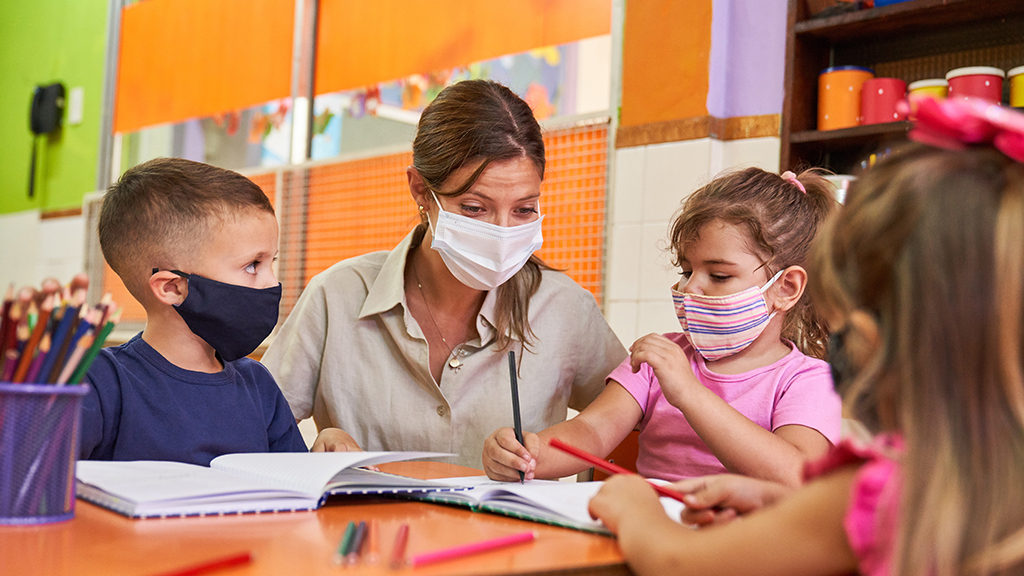The beginning of fall is often a time of transition. As an RECE, you have strategies and practices to guide children, families and colleagues in your practice setting through these changes. However, the pandemic has created unfamiliarity for many. Beyond the typical transitions involved with starting a new program or school year, individuals have experienced many unforeseen and challenging changes over the last year.
RECEs are flexible in their practice and use their professional judgment to guide decision- making, communication and collaboration, to support children, families and their work with colleagues. In this unique season of transition, RECEs rely on these skills and the following:
Adapting
Remain open-minded, flexible and empathetic to how children, families and your colleagues are transitioning. This may be the first time a child has been away from their family, or your colleague may still feel trepidation about being in public. With so many changes, it’s important to remember your values and the foundations of your practice, while remaining open-minded to adapting your practice to support the best interest of the children. Whether you’re using new communication methods, learning updated health and safety protocols or modifying your pedagogical practice, your ability to adapt to these experiences will support these changes.
Trauma-informed practice
Children, families and colleagues are returning from a year of unique experiences and emotions. Refraining from judgment, asking questions, listening and providing safety are steps that all RECEs can take. Communicate with families and children to support transitions considering the potential traumas they may have endured, or fears or challenges they may be going through. Consider the following resources to support your learning about trauma-informed practice: Crisis and Trauma Resource Institute’s Four ways to practice trauma-informed healing during COVID-19, and the Ministry of Children and Family Development of BC’s Healing families, helping systems: a trauma-informed practice guide for working with children, youth and families.
Children’s Behaviour
Developing responsive relationships is foundational to your practice. This takes time, flexibility and a willingness to stop, listen and be in the moment. With all of the ongoing changes in your practice such as developing new routines, transitions and programming expectations, it’s important to not let those responsive and authentic relationships with the children fall behind. The children in your care will be coming from an array of experiences so be aware of your assumptions in co-creating an inclusive environment that supports positive interactions with children and their families. Recognize that these are challenging times – particularly for some children and families, and explore all potential reasons for changes in a child’s behaviour.
Support
Be there for one another. Whether you’re new to practice, or you’re welcoming new RECEs at your workplace, it’s important to build strong, trusting and collaborative relationships at work with colleagues. You may work with a new RECE who’s transitioned from studying remotely to practising in person. Lead, mentor and guide them through this transition with your experience and knowledge. Or, you may work with supply staff who aren’t as familiar with your workplace. Communicate with other educators to ensure that relevant information about changes for a child or family is shared so that you can appropriately address their diverse needs.
Provide support to children and families in an equitable and inclusive way. Recognize and be mindful of the different experiences that marginalized families have faced and continue to face, and take the time to listen, and learn about how you can best support them.
Together as a community of RECEs, you will navigate the typical transitions, along with the new or ongoing and perhaps challenging ones. This helps create an inclusive learning environment that supports positive, empathetic and caring interactions between children, their families, and your colleagues.
If you’re looking for support for your own mental health and well-being throughout your own transitions, contact your local Canadian Mental Health Association. ConnexOntario is also available with a 24/7 information service about mental health-related services.
Other resources
- Qualified, Capable, Ready
- Practice Note: Professional Supervision of Supervisees (2020)
- Practice Note: Professional Supervision of Children (2019)
- Practice Guideline: Supporting Positive Interactions (2017)

